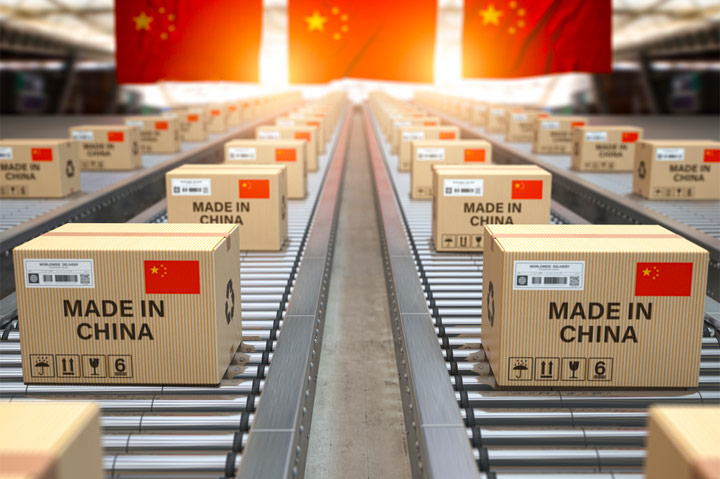November 30, 2021
China’s Manufacturing Sector Returns to Growth
It’s good news as the majority of promo products sold in North America are manufactured in China, though potential challenges from the omicron variant loom.
Chinese manufacturing is growing again.
Following two straight months of contraction, China’s manufacturing sector expanded in November. The nation’s official Purchasing Manager’s Index for the month tallied 50.1, up from 49.2 in October, according to the National Bureau of Statistics. Readings of 50 and above denote expansion.

The majority of promotional products sold in North America are produced in China. As such, it was especially notable for promo pros that a subindex on production output increased, rising from 48.4 in October to 52 in November.
A subindex for input prices was 52.9 in November, down significantly from 72.1 in the previous month – a good thing, suggesting that inflationary pressures had lessened. Higher input costs for Chinese manufacturers can ultimately result in higher prices on the goods they produce, including promo products.
Analysts noted that China’s increased manufacturing production and overall performance was propelled, in part, by a decrease in some raw material prices and an easing of the power rationing and related electricity shortages that had slowed production in September and October.
China’s manufacturing PMI beat expectations, rising to 50.1, back in expansion for first time since August.
— Jeffrey Kleintop (@JeffreyKleintop) November 30, 2021
Inflation measures plunged: input prices fell to 52.9 from 72.1 and output prices dropped to 48.9 from 61.1.
Signs inflation is easing raises odds of more policy stimulus. pic.twitter.com/eAUNcqYsaD
The Wall Street Journal recently reported that global supply chain issues were showing signs of easing, with manufacturing in Asia bouncing back and some bottlenecks clearing. ASI Media also reported that promo products suppliers were seeing a little relief in some supply line pressures, as they power what so far has been, executives said, a successful fourth quarter.
Still, the emergence of the new omicron variant of COVID-19 could potentially hamper the progress experienced in manufacturing and supply networks in general.
Wider-spread virus outbreaks, for instance, could exacerbate labor shortage issues that gum up supply lines, leading to problems like timely inventory replenishment in promo. The implementation of societal restrictions, either domestically or in producer countries in Asia, could also create a range of issues.
According to The Wall Street Journal, “economists say they don’t anticipate a broad return in Asia of strict zero-COVID-19 strategies that aim to eliminate all transmission, though the intensity of any new restrictions will depend on how dangerous omicron proves to be.”
Nonetheless, some analysts think China will impose harsher societal restrictions if faced with omicron flareups.
With omicron spreading, businesses and investors should prepare for further unpredictable closures of factories and ports in China and restrictions on mobility and services, Craig Botham, chief China economist at Pantheon Macroeconomics in London, told the Journal.